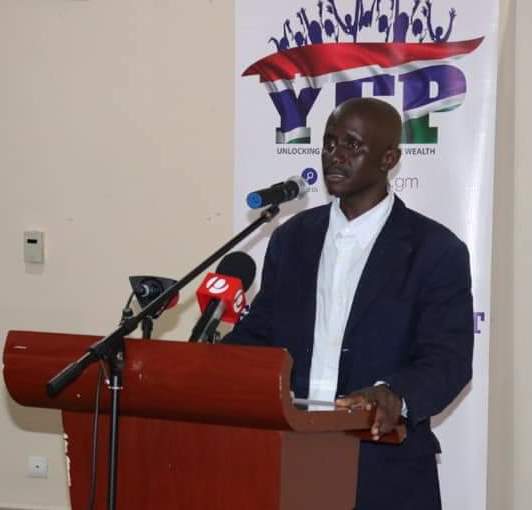
As the battle rages for effective and efficient implementation of the 2004 Copyright Act and the 2018 Copyrights Regulations, The National Centre for Arts and Culture (NCAC) relocated The Copyright Office to its annex at Mango Tree, located behind Guarantee Trust Bank Ltd on Kairaba Avenue for operations effective 5th October 2020.
All matters of Copyright and Related Rights registration, administration and coordination shall now take place at the new Copyright Office at the said Mango Tree, hence drawing the attention of the general public, especially stakeholders and those interested in matters of Copyright and Related Rights affairs about the new development meant to serve greater public interest, through promotion and protection of our creative and cultural industries with effective copyright regime in place without delay.
The Copyright Office is created under section 56 of the 2004 Copyright Act and assigned with functions not limited to registration and management of Copyright and Related Rights issues in the country, but also empowered to advice the Government, through the ministry of Tourism and Culture and the National Centre for Arts and Culture on matters affecting Copyrights and Related Rights as well as The Gambia’s position and relations on regional and international treaties, convention and protocols on Copyright and Related Rights.
The Copyright Office is also empowered to license and supervise operations/ functions of Collective Management Offices (CMOs) as it is called Collecting Society of The Gambia (CSG) under section 74 of the cited 2004 Copyright Act.
The Copyright Office is further empowered to protect and promote matters affecting our traditional cultural expression called folklore across the country, through section 27 of the 2018 Copyright Regulations.
According the available data, only three sectors of the Copyright industries such as visual arts, film and television contributes an estimate of US$ 477 billion (four hundred and seventy seven billion dollars) to global revenue, whereas the 2005 UNESCO Convention on Promotion and Protection of Diversity of Cultural Expressions report of 2018, estimated US$ 2,250 billion contribution of cultural industries to the global economy.
These and many others affirmed the need for Gambia and other developing countries to tap and make effective use of their creative and cultural industries, through promotion and protection of the arts of creativity and innovation with effective copyright regime.
By Sanna Jawara, Copyright Officer and Intellectual Property Law Masters candidate




